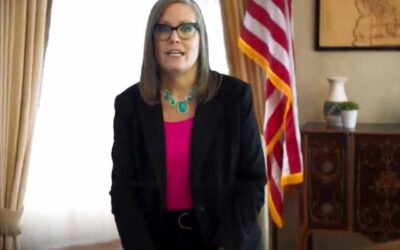By Daniel Stefanski |
This week, the Arizona State Senate Republicans Caucus announced that it had joined an amicus brief in federal court to help challenge California’s Assault Weapon Control Act.” The brief, which was filed in the U.S. Court of Appeals for the Ninth Circuit, was led by the attorneys general of Idaho, Iowa, and Montana, and co-signed by almost two dozen additional States.
The Caucus’ “X” account wrote that “the Second Amendment doesn’t allow California to force its liberal policies on the rest of the country and outlaw hundreds of semiautomatic rifles and handguns commonly used by law-abiding citizens for self-defense.”
In their brief, the attorneys general and legislators asserted that the California gun law “reflects a starkly contrasting view of the Second Amendment.” They added that “instead of protecting the right, the Act attacks its core. It disregards a fundamental liberty that belongs to all law-abiding Americans. The Act further encourages other governments to experiment with the people’s rights. In many ways, States are laboratories of democracy. But when it comes to the Bill of Rights, States cannot experiment. All States must respect and defend all Americans’ rights. Unless enjoined, the AWCA’s eroding impact will not be confined to California.”
The action from the Arizona’s legislators follows another brief they joined with a coalition of attorneys general from around the country. In December, Petersen and Toma joined a public comment letter to the Bureau of Alcohol, Tobacco, Firearms and Explosives (ATF) to address its newly proposed rule, Definition of “Engaged in the Business as a Dealer in Firearms.”
By co-signing the ATF letter, the Grand Canyon State lawmakers concurred with the arguments that the proposed rule “violates the Second Amendment, is arbitrary and capricious, and is bad public policy.” Petersen told AZ Free News that “in the absence of our Arizona Attorney General defending our citizens’ constitutional rights, I believe it’s imperative state lawmakers push back against this bureaucratic infringement on lawful gun ownership.” Toma said, “Arizona Attorney General Mayes has not expressed any interest in safeguarding Arizonans’ gun rights protected by the Second Amendment.”
Over the past month, the two Republican legislative leaders have signaled a more aggressive shift in taking the reins from Mayes to defend the law and Constitution. Attorneys general are not usually joined by outside parties on their amicus briefs, yet two coalitions of Republican state prosecutors have included Petersen and Toma on these two major filings. Before those instances, the legislators filed their own briefs on several cases in 2023. One of those was in Garfield County v. Biden, supporting the State of Utah in a challenge to Biden’s recent federal land grab. Another was in City of Grants Pass v. Gloria Johnson and John Logan, asserting that the Ninth Circuit Court of Appeals erred in deciding “it was better at making policy than elected state legislatures and city councils” in a matter of homeless encampments. Yet another was in Doe v. Horne, defending Arizona’s Save Women’s Sports Act.
In another case where they intervened in federal court, Mayes v. Biden, the Republican leaders recently won a significant legal victory, when the U.S. Court of Appeals for the Ninth Circuit issued an order against the Biden administration’s Contractor Vaccine Mandate, vacating its earlier opinion for mootness.
Petersen and Toma are expected to continue their legal fights through this pivotal election year, while also navigating, what is expected to be, a very contentious legislative session with the state’s Democrat Governor, Katie Hobbs.
Daniel Stefanski is a reporter for AZ Free News. You can send him news tips using this link.








